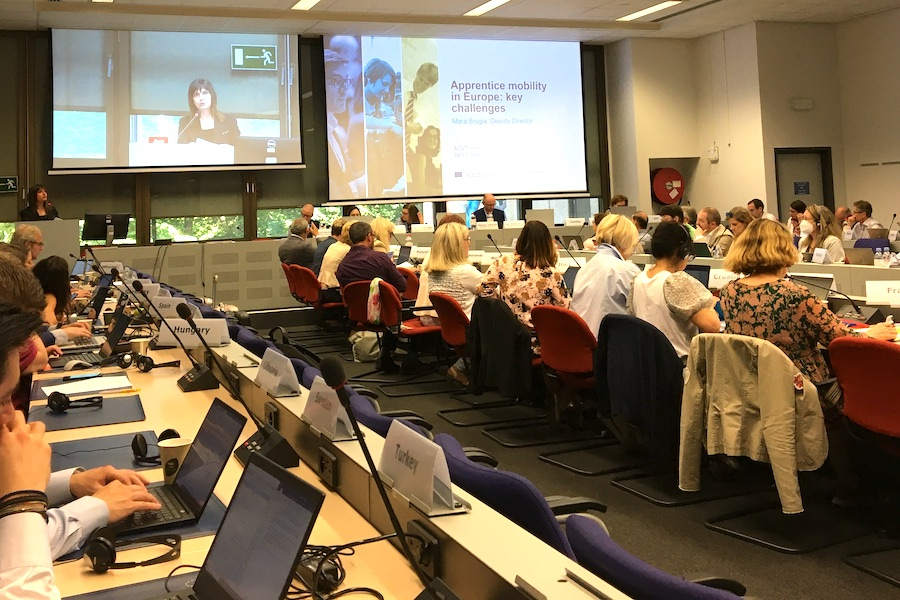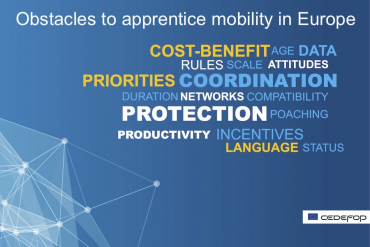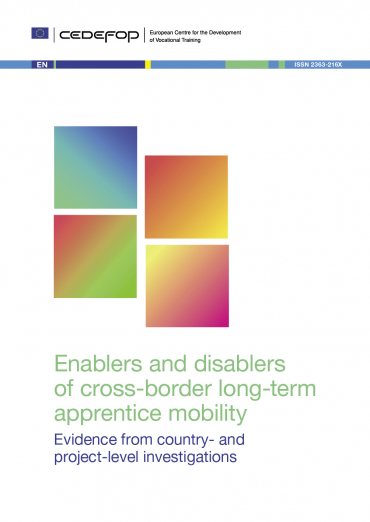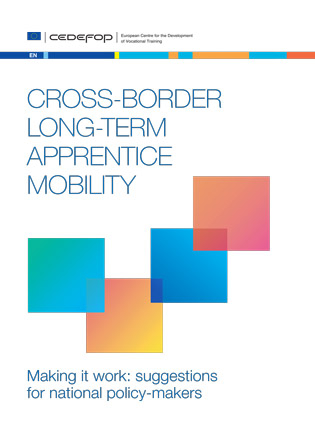Setting up intermediary organisations and coordination of all involved ought to be the cornerstones of a European policy to promote and expand long-term apprentice mobility, Cedefop Deputy Director Mara Brugia told the European Commission's Advisory Committee for Vocational Training (ACVT) on 17 June, in Brussels.
ACVT has the task of assisting the Commission in implementing vocational training policies, and one the themes of its latest meeting was vocational education and training (VET) mobility, including apprentices.
Presenting conclusions drawn from Cedefop's research, Ms Brugia laid out the challenges that long-term apprentice mobility has been coming up against over the years and that must be overcome if the practice is to be developed further, which, she noted, given the obstacles, is likely to remain a long-term goal.
As Ms Brugia pointed out, these challenges are linked to the very nature of apprenticeships, being at the crossroads between education and employment, and are manifested in employer engagement, at the institutional and system levels.

Elaborating on the specific barriers that long-term apprentice mobility is facing, the Cedefop Deputy Director noted that:
- Training companies in the sending and receiving countries need to agree on their apprentices going abroad and to host others – and this requires coordination.
- The nature of the relationship between apprentice and training company and the rules that go with it, such as status, remuneration or social protection, need to be clarified and agreed upon.
- In many countries and among employer organisations, long-term apprentice mobility is usually not flagged as a primary issue in the policy agenda.
- There is a lack of specialised organisations that could take over the management of long-term mobility, as well as effective cross-country networks between them and VET providers.

Ms Brugia listed some of Cedefop's policy recommendations on long-term apprentice mobility:
- Start from setting up intermediary organisations where they do not exist and engaging them and VET providers; and then enable them to work in cross-border networks.
- Use short-term mobility as a stepping stone for long-term mobility: use successful practice in short-term mobility and then go to the next level.
- Communicate the benefits of mobility among companies and apprentices, with the support of social partners at national and EU level.
- Adopt a sectoral approach, with the social partners in the driving seat; this could be an effective vehicle in a strategy to make apprentices in Europe more mobile in the medium to long run.
Dealing with the Ukraine refugee crisis
During the ACVT meeting, Cedefop's Ramona David presented the Agency's work in the context of the Ukraine crisis.
She analysed how Cedefop makes optimal use of its past experience of researching refugee protection linked to legal labour market mobility, as well as its networks of EU structures and VET organisations, to produce policy suggestions for tackling the massive influx of people fleeing the war in Ukraine.
'Putting the basis for cross-country networking platforms that connect refugees with employers across the EU countries and support them in getting the necessary upskilling and reskilling is the main aim of Cedefop's work in the field,' Ms David said.







